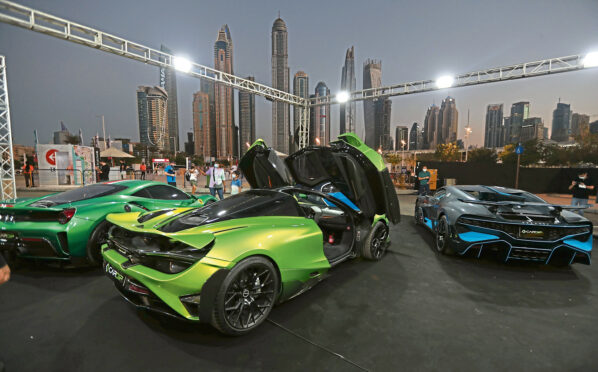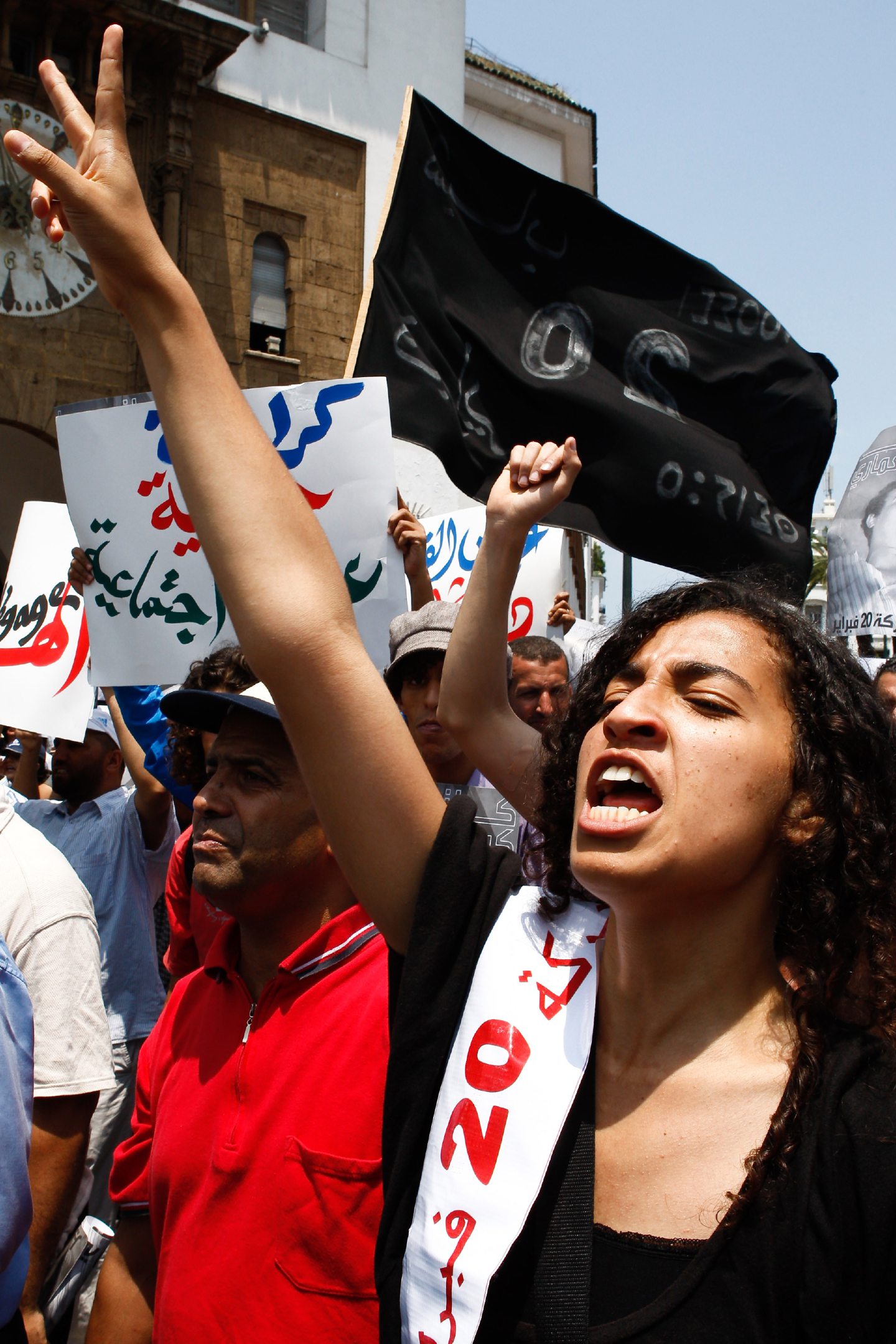
It was the year of the Arab Spring – 12 months meant to change everything – but did 2011 change anything at all?
The sky-scraping billionaire boltholes of Dubai are an unlikely vantage point to look back over the years since those tumultuous times.
It started in Tunis in December 2010, the urgency and insurgency spread across the region in the months that followed but today the glimmering towers of the most populous city of the United Arab Emirates reflect only power and wealth not the new world promised when revolution was in the air all those years ago.
This sense of global prestige and vitality was an aspiration of those who rallied then. Yes, Arab protesters objected to ultra-conservative rule – the royals who run Dubai were by no means role models for any of them – but they longed for a future still to be created.
If it was ever created it was certainly not in Dubai, the futuristic metropolis still being built by an elective monarchy in the oil-rich Persian Gulf. Meanwhile, rather than sustaining a sense of progress, countries in the Arab world such as Syria, Libya and Yemen remain mired in conflict.
There have been few economic or social gains in traditional states where despots subjugate and military power dominates.
It was a time of intense optimism when I was reporting from Tunis, the capital of Tunisia, at the very start of the Arab Spring where placards calling for a better life were waved on every corner in every street.
The people were demanding jobs, better homes, and a host of other rights and freedoms including the ability to say exactly what they wanted.
Young people came to the fore, using social media and all other online developments to mobilise across a country traditionally dominated by old men.
Traditional censorship started to become an impossibility as citizens instantly published or broadcast at any time of the day or night to a global audience.
The so-called Jasmine Revolution demonstrators in Tunisia were remarkably peaceful too, especially considering how much anger was being expressed.
As someone who grew up experiencing regular riots in my home city of Paris, I was hugely impressed at how restrained highly politicised north Africans could be when mobilising against injustice.
This did not stop the security services of Tunisian dictator Zine El Abidine Ben Ali, who had been in power for 23 years, cracking down on them brutally, however.
The force used was usually aided with the help of armaments and other repressive tools imported from European countries including France.
Many European leaders had developed very close and mutually beneficial personal ties with the Arab dictators and had very selfish reasons for keeping them in power.
Huge crowds appeared on the street, capturing the imagination of the world, but they were met with bullets and baton charges.
There were deaths and serious injuries, but Ben Ali was ousted within weeks, and fled to Saudi Arabia.
For those that remained in Tunisia, elation followed, albeit briefly. People were emboldened like never before, as they dreamt of taking control of their own lives.
“We want to earn our own money – to succeed as free individuals,” said Drissi Ayari, who was a Tunis university student in 2011. “Yes, idealism is important to us, but economic power is too.”
Tunisians adopted a new constitution that officially allowed them to vote in free elections, but chaos was not far away.
Kais Saied, the current president, has vowed to fight the endemic corruption that has led to rocketing food prices and a rapidly declining standard of living, but he now appears to be a big part of the problem.
Tunisia is billions of dollars in debt, and many fear that economic collapse will lead to increased social disorder and – inevitably – more repression.
Many of those who were so full of positive thoughts a decade ago now say it is starting to feel just like the run-up to 2011 again.
Saied is now ruling by decree which makes a mockery of the flimsy democratic system.
Books and articles by dissidents are being censored for reporting uncomfortable facts about the current regime.
Even former president Moncef Marzouki has received an arrest warrant for speaking out against Saied.
The worst part is that Tunisia was meant to be an example to the rest of the Arab World – the country where the Arab Spring started, and which everyone else followed.
It is certainly true that the Jasmine Revolution had a domino effect. A detested regime fell in Egypt, and then even more brutal dictatorships were challenged in Syria, Libya and Yemen.
The initial result in all cases was more bloodshed, and in the latter three countries civil wars that are still far from over.
Abdel Fattah el-Sisi, a retired military commander, now rules Egypt in a manner that is even more authoritarian than the deposed Hosni Mubarak.
Opponents are arrested and imprisoned or killed, while repression is as commonplace as poverty.
In the face of such disasters, there is little surprise that Gulf States such as the UAE are now viewed as the power houses of the Arab World, and not the traditional regional leaders such as Egypt and Syria.
This is by no means because of their systems of government, or the hope they offer to ordinary people who will never enjoy the five-star luxury prevalent in cities such as Dubai.
Instead, it is because they are considered ruthlessly pragmatic as they adapt their identities to the global economy. Hence Dubai currently hosting the Expo 2020 world fair that was postponed for a year because of the coronavirus pandemic.
The Expo projects Dubai’s chosen image as a safe haven in the Middle East. Almost every major international company has a presence here, principally because of its outstanding global communications and secure financial system.
Unlike nearby Abu Dhabi, the capital of the UAE, Dubai does not rely on oil for its prosperity, but instead on high-tech commerce.
Wandering around the 1,000 acre Expo site – a collection of districts focused on the buzz words Opportunity, Mobility and Sustainability – you get an understanding of the technocratic ambition that transcends the aggressive turmoil of politics.
Exhibits range from the world’s largest passenger lift – one that can fit 160 people – to explanations about how to preserve coral reefs.
“Creating Minds, Creating the Future,” is the overall theme of Expo 2020 – a slogan that at least offers the chance of some kind of improvement in a horribly imperfect world.

Enjoy the convenience of having The Sunday Post delivered as a digital ePaper straight to your smartphone, tablet or computer.
Subscribe for only £5.49 a month and enjoy all the benefits of the printed paper as a digital replica.
Subscribe © Abdeljalil Bounhar/AP/Shuttersto
© Abdeljalil Bounhar/AP/Shuttersto